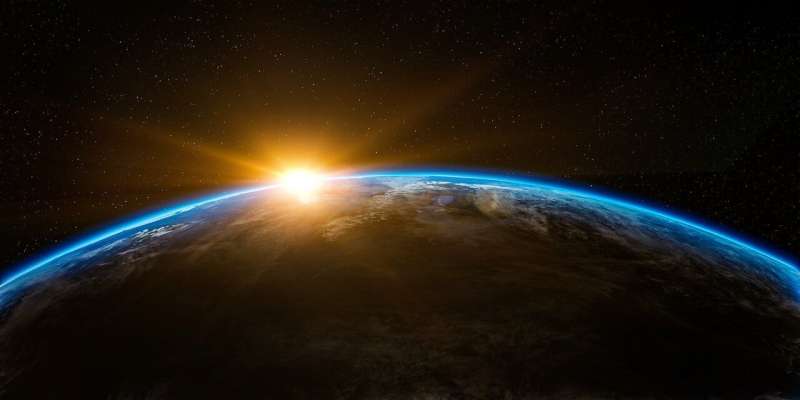
Each atom carries a small magnetic moment called spin. These spins influence each other. If you give one of them a push, they will start moving together in a very specific way. Atoms can feel each other.

Scientists have found that lightning bolts and, surprisingly, subvisible discharges that cannot be seen by cameras or the naked eye lead chemical reactions breaks down molecules like the greenhouse gas methane.

Cases of COVID-19 are extremely rare among people who are fully vaccinated, according to a U.S. data analysis. COVID- 19 breakthroughs occur at the rate of less than 0.008 % of fully vaccinated people.

The genes in question are related to interferons, the body's frontline virus fighters. Knowing which genes help control viral infection can greatly assist researchers' understanding of factors that affect disease severity.

The life-changing surgery took place in January as was a success. The surgery took about 18 hours and about 50 specialists, including surgeons, nurses anesthesiologists, airway specialists and residents.

If to cut the planet in half at the 60 degree longitude line, the half of the planet that consists mainly of the Pacific Ocean allowed much more heat to escape than the hemisphere that includes Africa, Europe and Asia.

Lightning strikes were just as important as meteorites in creating the perfect conditions for life to emerge on Earth, according to new research. This shows that life could develop on Earth-like planets through the same mechanism.

According to a new study, 555-million-year-old oceanic creatures from the Ediacaran period share genes with today's animals, including humans.

Since element 99 - einsteinium - is very hard to create and it is exceptionally radioactive. A team of chemists has overcome these obstacles to report the first study characterizing some of its properties.

Geoscientists have released a video that for the first time shows the uninterrupted movement of the Earth’s tectonic plates over the past billion years. On a human timescale however - things move in cm per year.

European Space Station observatory has recorded five blue flashes from the top of a storm cloud, one of which ended with a blue jet streaking high into the stratosphere. Our understanding of these blue jet lightnings is limited.

Scientists around the world have noted that the Earth has been spinning on its axis faster lately - the fastest ever recorded in decades. Scientists say we may need to cut an entire second out of the year.

A total of 503 new species were discovered by scientists at London’s Natural History Museum in 2020. Once again, an end of year tally of new species has revealed a remarkable diversity of life forms and minerals.

From the rapid development of vaccines for Covid-19 to the stunning collection of an asteroid sample, these were the biggest science moments of the year.

A simple compound called diamidophosphate (DAP), which was plausibly present on Earth before life arose, could have chemically knitted together tiny DNA building blocks called deoxynucleosides into strands of primordial DNA.